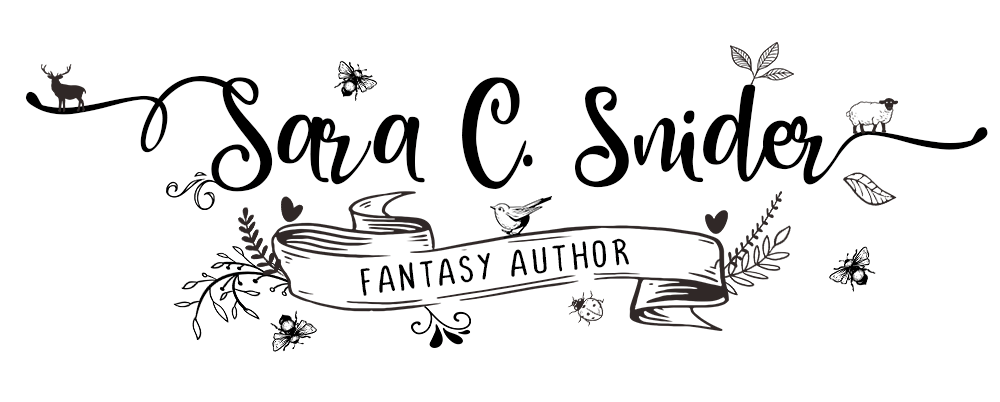Previous: The Edge of Winter
Hazel hurried down labyrinthine stone corridors as she fled from her father and the summoned aspect of her mother. She had no idea where she was going, which was just as well as she’d likely have no idea how to get there even if she had. She just needed to get away; she needed a moment to breathe.
It was all starting to feel like a dreadful mistake, her coming here alone. She had known, deep down, that her father would likely refuse to release her mother. And yet, Hazel had never come up with a plan on how she would stop him. That particular detail had always seemed so distant, caught in a hazy, nebulous future that had never felt as pressing or urgent. But now that moment was here, and Hazel had no idea what to do.
She turned down one stone hallway onto another that looked identical. She studied the doors, looking for a detail that would suggest she had passed this way with Verrin, but there was nothing. Eager to get out of the monotonous stone passageways, she tested the doors until she found one that was unlocked. She passed through it and into a room with roughly hewn walls. The room was sparsely furnished, though a fire blazed in the hearth. She wondered if there were servants who did nothing but go from room to room, lighting fires and tending to them throughout all the day. If there was, why didn’t she see any of them?
A painting hung over the mantle. At first, it looked entirely black, but the longer Hazel studied it, the more details she was able to make out. Pale sloping hills stood out against a starless night sky. At the base of a hill stood a little cottage, with a single thread of smoke curling from the low chimney. In front of the cottage stood a man or… something. It kind of looked like a rabbit, but it was tall like a man and it held a scythe so that the long, curving blade arced over its head. She squinted her eyes, trying to figure out what kind of creature it was.
“Those paintings have been known to drive men mad,” came a man’s voice from behind her. “So I wouldn’t look at it too long.”
Hazel turned and found Verrin standing in the doorway. She turned back around. “I’m not sure why you’d care whether I go mad or not.”
“Someone should care, since you don’t seem to.”
“Don’t pretend to know my mind.”
He came and stood next to her, his gaze on the painting. “Some say the picture is different for each man that looks at it. Others say that the picture will change, depending on the mood of the viewer.”
“I think someone thought overly much of himself and used too much black paint to make the picture seem more mysterious than it really is.”
Verrin smiled. “A distinct possibility.” He glanced at Hazel. “He can help you, you know.”
“Who?”
“Your father.”
Hazel scoffed. “The only help I want from him is for him to undo his own mistake.”
“And that is your mistake. Ash is brilliant. He’s almost entirely self-taught. That alone is quite remarkable and nearly unheard of. He has enriched our Order beyond description. He could do the same for you, if you’d let him.”
“Now I know why he favors you so much,” she muttered.
“I beg your pardon?”
Hazel shook her head. “Nothing.”
Verrin studied her a moment. “I’m to show you to your quarters. If you’ll follow me, please.”
He walked to the door, opened it, and waited for her.
Hazel glanced back at the painting, but whatever image she thought she saw earlier was gone, and all she could see were swirls of brush strokes, frozen in the black paint like forgotten tides. She turned and walked through the door Verrin held open for her.
He led her through narrow, damp corridors that tunneled through the mountain. Rivulets of water sluiced down the rock, while patches of moss and tiny, pale ferns grew from the cracks. Hazel felt like the weight of the mountain pressed down on her. The cold from the stone seeped through her clothes and into her skin and bones, and by the time they stopped at a door that Verrin opened for her, she was shivering and her teeth chattered so loudly that the sound echoed down the hall.
Inside, a fire crackled in the spacious hearth, and the long wooden table was set with a cloche-covered tray, a stemmed crystal glass, and a bottle of wine. Hazel walked to the fire and warmed her hands by it, feeling as the cold ebbed from her bones, replaced by a comforting warmth and fatigue.
Hazel yawned. The day was still young, but she felt so tired.
“You’ve traveled far,” Verrin said. “I’ll leave you to eat and rest. I’ll see to it that you’re brought sturdier clothing that is better suited to the climate here.” He gave a slight bow, turned, and walked out.
Hazel looked around. The chamber was furnished much like her father’s chamber had been. It was smaller and cozier, without an open wall that led to an overgrown balcony. But the quality of furnishings all looked the same, and she was glad to be in a snug little room—made quite warm by the blazing fire.
She walked to the table and lifted the cloche from the tray. Some kind of roasted fowl—pigeon maybe—dressed with herbs, an onion and celery sauce, and greens Hazel had never seen before. They tasted bitter, yet weren’t unpleasant. She sat down, poured herself a glass of velvety red wine, and ate.
The meal was delicious, but she took little enjoyment in it. It felt strange eating alone, and the wine was strong and went to Hazel’s head so that when she rose, she stumbled through the door that led to the bedchamber, collapsed on the bed, and promptly fell asleep.
When Hazel awoke the air had cooled. The fire in the main roomed had died down to embers. This surprised her, even though she was glad someone hadn’t come in to poke at the fire as she slept. Then she noticed the tray had been removed, and in its place on the table now stood a mirror, a silver basin and matching ewer. Over the back of one of the chairs, a black robe had been draped. Hazel’s contentment curdled into annoyance.
She ran a hand over the robe. It was softer than it looked, and thick, too. She supposed this was what Verrin had meant in finding her warmer clothing, but it wasn’t at all what Hazel had in mind. If they thought they would make her into one of them, they were sorely mistaken.
She moved over to the fire, making a point not to look at the ewer and basin. Who had left that there, and why? At any other time in her life, Hazel would have assumed the items had been left there for her to clean herself up. But now she knew better. Now she knew exactly what kind of magic she could work with such tools—what kind of magic she had worked—and it made her uncomfortable.
The room was dark. There were no windows, and lamps that had been lit before now stood dark. The only light came from the dying embers that illuminated the room with a sombre, eerie glow.
Hazel poked the embers into renewed life and looked for more wood to throw on the fire, but there was none. She sighed. Whoever tended the fires must be too busy making sure all the empty rooms had blazing hearths while occupied rooms went cold. She went to the door to search for more wood, but the door was locked.
Hazel stood there, staring at the black wood of the door, her hand lingering on the handle. Surely it wasn’t locked. The door must be stuck. These mountain hallways were dreadfully damp, and she didn’t care what kind of wood Verrin told her these doors were made of—they were wooden, and wood warped in dampness.
She tried the door again and pulled as hard as she could manage. Her arms shook, sweat broke across her brow, but the door did not budge.
“Unbelievable,” she said, acutely aware of the oddness in speaking to herself. She banged on the door with her fist. “Hello? Anybody out there?” She banged until her fist throbbed with pain, and so she kicked the door instead.
“Somebody! Let me out of here!”
But nobody came.
Hazel stopped kicking as she caught her breath, anger slowly rising in her in a way she had never felt. She grabbed the poker from near the hearth and struck the door handle with it. The impact jolted through her arm that rendered her bones into jelly. She struck again and again, until pain radiated in her arm and up her neck, but the handle remained fixed in place, and the door still would not open.
Hazel cried out and threw the poker across the room where it collided with a bookshelf and clattered to the floor. She clenched her hands as her breath came in deep, ragged breaths. This wasn’t a mistake. The door wasn’t warped.
They had locked her in. Her father had locked her in.


Wow, Hazel’s father is a piece of work. I like this, I’m looking forward to finding out what happens to her.
Hehe! He is a piece of work. 🙂 Thanks, Michelle!